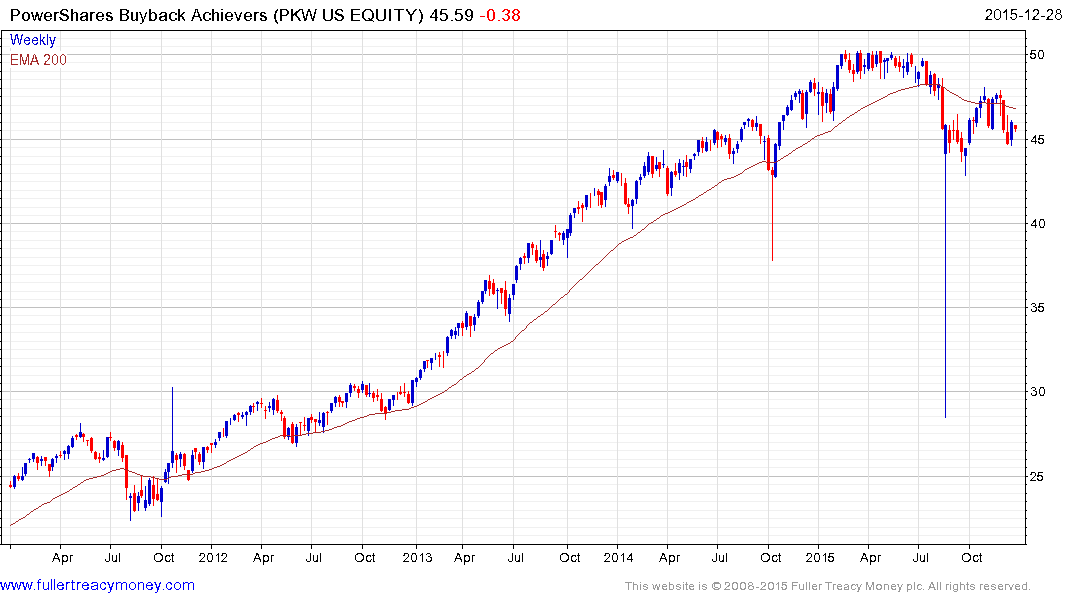A Texan in King Arthur's Court
Thanks to a subscriber for this letter which may be of interest to subscribers. Here is a section:
Silverblatt’s recent work on share buybacks has cast a harsh light on one of the unfortunate outgrowths of accommodative Fed policy. This year’s third quarter marked the seventh consecutive three-month period in which over 20 percent of the S&P 500 constituents “bought their earnings per share (EPS) via buybacks,” in Silverblatt’s words.
Drilling down leads to the discovery that one-in-five companies have juiced their EPS by a minimum of four percent over the prior year via buybacks. How does this work? The act of reducing share count by at least four percent by definition boosts earnings PER share by the same amount. Looking ahead using companies’ more recent activity as a gauge, this year’s last three-month period will mark an eighth consecutive quarter of similar share count reduction.
At $559 billion over the past 12 months, buybacks are up 1.6 percent over 2014. Still, barring an extraordinary fourth quarter, 2015 will not be one for the record books. For now, the 2007 record of $589 billion looks to stand.
Of course, there is hope for short-sighted investors, if hope is what you’d call it. As Silverblatt quips, “The combination of low interest rates, even as Yellen & Co increases rates, and high cash levels continues to give companies the ability to set record shareholder returns.”
Or, as Cashin has said of this corporate conduct, “Companies have raised financial engineering to a Botox state.” It won’t surprise you that I couldn’t agree more
Using the financial calculation promoted by business schools, it still makes sense to buy back shares because the cost of debt for highly rated companies is still lower than the cost of issuing new equity. Maximising the weighted average cost of capital often means issuing new debt to buy back shares, thus lowering the average interest rate paid on the total. That will not always be a profitable trade and high yield issuers are already seeing the return demanded by investors rise. However as long as major companies are buying back their debt in such large quantities it represents a tailwind for the market.

The problem is that it represents a diminishing influence on the market the higher prices go because the quantities required to have the same influence need to continue to rise. The PKW PowerShares Buyback Achievers ETF (PKW) continues to lag the wider market and has been subject to some quite extreme volatility. It is currently rallying from above the September low and a sustained move below $45 would be required to question potential for additional higher to lateral ranging.


